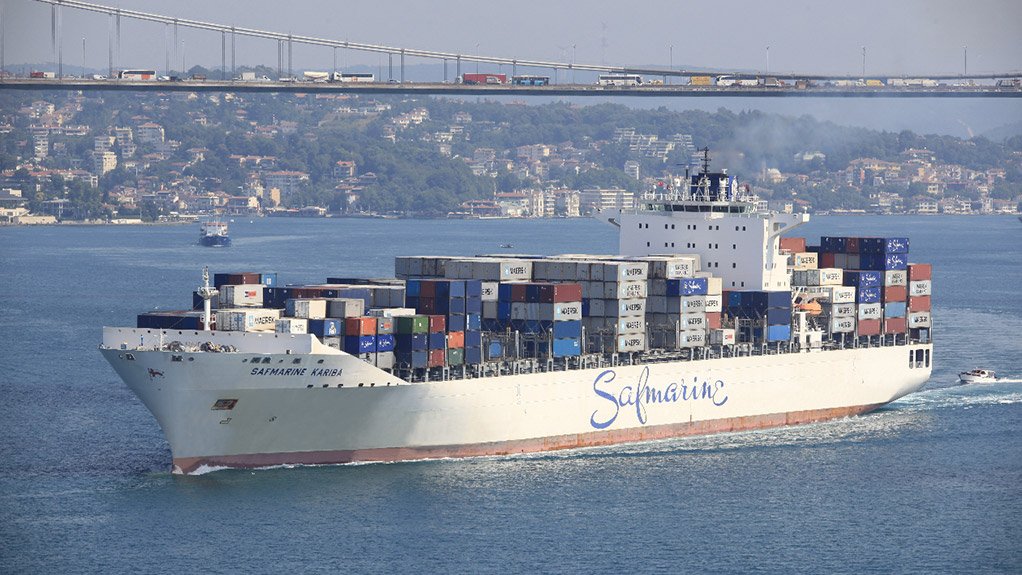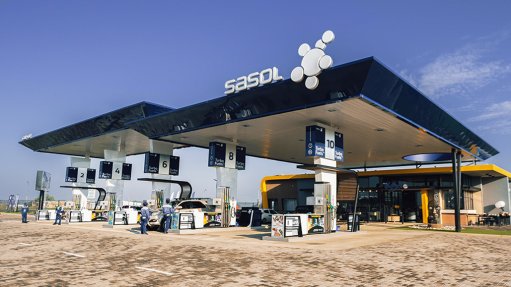Maersk to cut emissions by 60% by 2020
The Maersk shipping group aims to reduce its emissions by 60% by 2020, using 2007 as a baseline, says Safmarine Southern Africa MD Dirk Hoffmann.
Safmarine is part of the Maersk group.
To date, the shipping group has achieved a 40% reduction.
Innovation will play a key role in the group achieving its targets, says Hoffmann.
Maersk started retrofitting its existing fleet in 2014, with $1-billion to be spent on 100 vessels up to 2019.
These vessels will, for example, receive new propellers with reduced drag, explains Hoffmann.
Also, Maersk’s new Triple-E class vessels, to be phased into the group’s fleet, will reduce carbon dioxide emissions by 50% per container moved, compared to the industry average on the Asia–Europe trade route, through, for example, a waste heat recovery system, increased container capacity (meaning less trips) and a hull design for slower speeds.
The engine of a Triple-E operates at low propeller revolutions and uses larger propellers than traditional container vessels. With this combination less propulsive power is required.
A Triple-E container ship also features 2 800 sensors that continuously provide information on performance issues, such as pressure and heat, assisting in operating the vessel as economically as possible.
Hoffmann says Maersk is slowing down the average speed of its network, from 22 knots to 17 to 18 knots, in an effort to reduce emissions.
The network between Asia and Europe, for example, is slowing by six days.
“We are using bigger vessels and moving slower,” explains Hoffmann.
All 600 vessels in the Maersk group are also monitored from a remote control room, which advises operators on the most prudent action to operate more efficiently.
The results, to date, have been positive, says Hoffmann. For example, fuel use within the group has reduced from 10-million tons in 2012 to 8.7-million tons in 2014.
In 2014, Maersk produced 27.3-million tons of carbon dioxide, 286 000 t of waste, 466 000 t of sulphur oxides and 771 000 t of nitrogen oxides.
By 2020, the group would have ‘avoided’ 200-million tons of emissions, says Hoffmann.
He adds that the exercise in cutting emissions has also provided the opportunity to better manage group costs.
“The interesting thing about cutting emissions is that nobody wants to pay more for a more environmentally friendly service.”
Hoffmann says the shipping industry’s biggest challenge is economic in nature, and not environmental.
2009 was the first year since the start of containerisation that volumes deteriorated.
“We lost $9-million a day.
“In our industry we make long-term capital investments. We are influenced by movements in every market, from agriculture to mining and retail,” notes Hoffmann.
The future of container shipping looks healthy, though, with 2020 volumes expected to be up 80% on 2007 numbers should growth continue at the current pace.
Comments
Press Office
Announcements
What's On
Subscribe to improve your user experience...
Option 1 (equivalent of R125 a month):
Receive a weekly copy of Creamer Media's Engineering News & Mining Weekly magazine
(print copy for those in South Africa and e-magazine for those outside of South Africa)
Receive daily email newsletters
Access to full search results
Access archive of magazine back copies
Access to Projects in Progress
Access to ONE Research Report of your choice in PDF format
Option 2 (equivalent of R375 a month):
All benefits from Option 1
PLUS
Access to Creamer Media's Research Channel Africa for ALL Research Reports, in PDF format, on various industrial and mining sectors
including Electricity; Water; Energy Transition; Hydrogen; Roads, Rail and Ports; Coal; Gold; Platinum; Battery Metals; etc.
Already a subscriber?
Forgotten your password?
Receive weekly copy of Creamer Media's Engineering News & Mining Weekly magazine (print copy for those in South Africa and e-magazine for those outside of South Africa)
➕
Recieve daily email newsletters
➕
Access to full search results
➕
Access archive of magazine back copies
➕
Access to Projects in Progress
➕
Access to ONE Research Report of your choice in PDF format
RESEARCH CHANNEL AFRICA
R4500 (equivalent of R375 a month)
SUBSCRIBEAll benefits from Option 1
➕
Access to Creamer Media's Research Channel Africa for ALL Research Reports on various industrial and mining sectors, in PDF format, including on:
Electricity
➕
Water
➕
Energy Transition
➕
Hydrogen
➕
Roads, Rail and Ports
➕
Coal
➕
Gold
➕
Platinum
➕
Battery Metals
➕
etc.
Receive all benefits from Option 1 or Option 2 delivered to numerous people at your company
➕
Multiple User names and Passwords for simultaneous log-ins
➕
Intranet integration access to all in your organisation





















